Marital life of the Prophet Muhammad ﷺ - Part 2
Other wives of the Prophet ﷺ
Later, the Prophet ﷺ married Zaynab bint Khuzayma who died within two months of the marriage. Her first husband, Abdullah bin Jahsh was martyred in the battle of Uhud. His marriage with Zainab bint Jahsh was controversial and widely misunderstood or misinterpreted by his enemies. Zayd ibn Ḥārithah, the adopted son of the Prophet ﷺ given by Khadīja as a gift, had married her first. The Messenger of Allah ﷺ himself was on the front to solemnize this marriage. But, soon after, discord began to appear between Zaynab and Zayd which eventually led to divorce.
Then, the Prophet ﷺ had to marry her because of the order from Heaven. It had a hidden lesson, that is to invalidate the illegality of marrying the divorced wife of an adopted son. In the era of darkness, an adopted son was considered equal to a biological son. Islam eventually ended this belief. Zaynab was the first among his wives to die and join him. It cannot be true that the Prophet ﷺ happened to see her and was allured by her charm. She was the daughter of his aunt and had he intended for her earlier, he would have chances to meet her.
Click here for the first part : an introspection of prophet Muhammad's ﷺ marital life -part-1
Afterwards, the Prophet ﷺ took a few more women to his life like Umm Habība Ramla bint Abi Sufyān, daughter of an erstwhile archenemy of the Prophet ﷺ whom he could attract to Islam through her. Later he embraced Islam on the day of the conquest of Makkah. Others include Umm Salama, widow of an early Muslim Abu Salama, Safiyya bint Huyayy, daughter of a Jewish leader and widow of a Jew who was killed in the Battle of Khaybar, and Juwayriya bint al-Harith who was taken hostage in the battle of Banu Mustaliq. Khaula bint Khuzaima was the one who offered herself to the Prophet ﷺ.
Rumours and Responses
Several Christians who penned the life of the Prophet ﷺ were combative to depreciate his personality over polygamy. But unprejudiced observations and studies will unveil reality. He married his very first wife, Khadījah, at the peak of his youth. The age difference between them was 15 years. He had never married anyone during her lifetime. Dr, Philip K Hitti[1] has vividly observed that, “As long as this lady, Khadījah, with her strong personality and noble character lived, Muhammed would have none other for his wife.”[2]
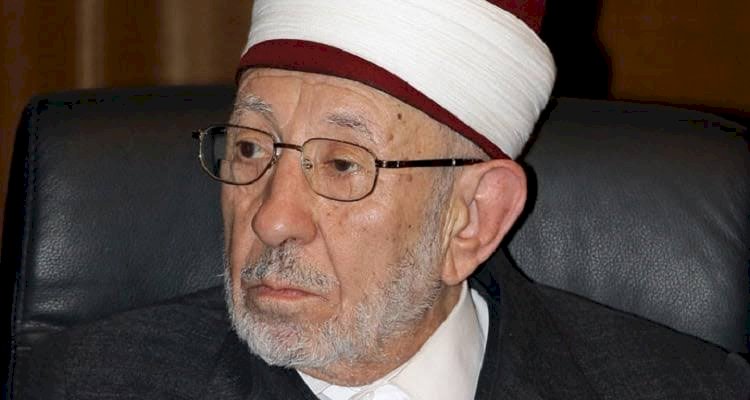
One of the great scholars of Islam in the 21st century, Saeed Ramadan Al-Būṭī, wrote, the very first thing one can understand from the Prophet's ﷺ marriage with Khadījah is that he was not interested in sensual pleasures as his peers might be. If he were so, he would have chosen a younger woman than him by the age or one who would have been approximately nearer to his age. He wanted to marry her for her personality, honour, and status in her society.[3] He took no other woman to be his wife in her lifetime. The age of 20 to 50 is a period in which a man may be eager and erogenous to take more women to his wifehood.[4]
His second wife, Sawdah bint Zam'ah, a lady of 55, came to the Prophet's ﷺ life when he was 50. It was a time he was busy with his propagation. Nevertheless, he needed someone to find solace and unburden his miseries amidst the great mission he took up from the God Almighty. William Montgomery Watt, a Scottish orientalist and historian, observed that Muhammad's marriages had never been for sensual gratifications. When Khadīja was alive, he had no other woman. By and large, his marriages were for political reasons. His marriage with Sawdah was an excellent example of this. She had lost her husband, who was an early Muslim. The Prophet wanted her not to be married by one from outside Islam.[5]
His marriage with Aishah had undoubtedly its hefts. This was to strengthen his extraordinary friendship with Abu Bakr. Aishah became his favourite wife as Abu Bakr was his favourite disciple and successor. W.M. Watt continues to say, "A story of Muhammad meeting unexpectedly with Zaynab bint Jahsh is heard here and there. No importance should be given to it since such an account is not recorded in his early biographies. He was at the age of 55 when he had married her. It is hard to believe her charm allured him at a glance. Moreover, he was the one who married her to his adopted son, Zayd bin Hāritha.
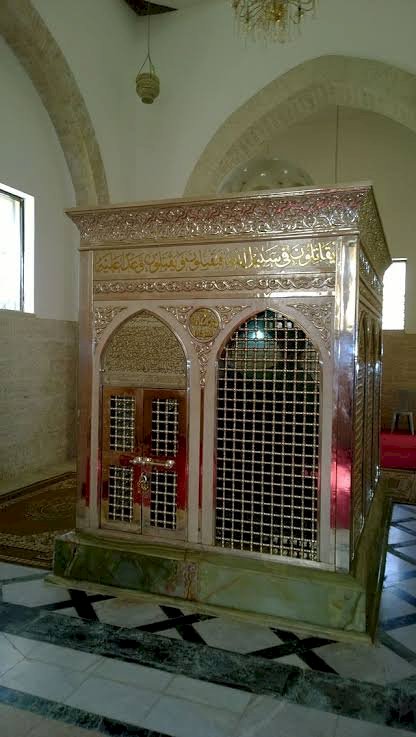
The secret hidden by the Prophet from Zayd was that when he complained about Zaynab's bad behaviour, he knew Zayd would be unable to endure her character and would divorce her soon. But he wanted a married life not to be broken by a silly reason.”[6] Each marriage had, in one way or another, its significance. Thomas Carlyle[7] adds to this fact that Muhammad was never a man of sensual pleasures. He was always away from enjoyment seeking. It will be a horrible injustice and unfairness if he is depicted as a gourmet. To a great extent, he was like a hermit who had no interest in earthly life. He wore coarse outfits and ate simple foods. Muhammad was irrefutably an outstanding person of exceptional greatness.[8]
Aishah, the beloved wife of the Prophet ﷺ after Khadījah, was knowledgeable. Such a brilliant young woman was necessary to capture the whole pictures of the Prophetic life. His life was to be learned and imitated by his followers irrespective of what is religious, personal, social and political. She was phenomenally successful in this endeavour as she had been among the great scholars of her time. Many great disciples of the Prophet ﷺ would go to seek her responses in essential issues. Hassan ibn Thabit had underscored this when he told: “I haven't seen no one more learned in Quran than Aishah had been.”[9]
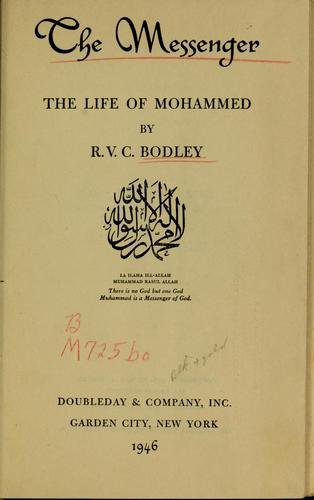
In conclusion, polygamy has become a subject of controversies only after European scholars began to evaluate it through western criteria. The distinguished English scholar R.V.C. Bodley, who authored 'The Messenger, the life of Muhammad', was bold enough to criticize this western mentality. In his book, he says: “It is not needed to evaluate Muhammad's married life by western touchstones or through the perspectives of the Christian canons or traditions.
The Arabs were neither westerners nor Christians. They grew up in an era and environment where they had their own peculiar culture and congenital features. Despite this fact, we have no vindication to glorify western or European hereditary characteristics are better than that of Asians or Arabs. Europeans ought to shun denouncing other religions or ideologies.”[10] Muhammad was the final messenger of Allah chosen to propagate Islam and guide humankind to the light of tawhid.
His life was impeccably quintessential for those who came after him, whether they were his followers or not. It was clearly observed by D.G. Hogarth[11] and Hitti[12] that “serious or trivial, his daily behaviour has instituted a canon which millions observe even today with conscious mimicry. No one regarded in the history by any section of the human-beings as perfect man has been so minutely imitated”. He was infallible as equally as all the messengers of Allah had been. His life will entirely be a paramount chapter to be learnt by all, even when he is harshly criticized by Islam's enemies.
End Notes
[1] Philip Khuri Hitti, was a Lebanese - American scholar and an authority of on Arab and Middle Eastern history, Islam, and Semitic languages.
[2] Philip K Hitti, History of the Arabs (Macmillan Press LTD,2001), P-112.
[3] Saeed Ramadan Al-Būṭī, Fiqhu al-Seerath al-Nabaviyya, Darul Fikr, Beirut, P-82
[4] Saeed Ramadan Al-Būṭī, Ibid, P-83
[5] William Montgomery Watt, Muhammed; Prophet and Statesman (Oxford University Press, 1961), P-79
[6] William Montgomery Watt, Muhammed; Prophet and Statesman (Oxford University Press, 1961), P-158
[7] Thomas Carlyle was a Scottish historian lived in 19th century.
[8] Thomas Carlyle, Heroes, Hero-worship and the Heroic in History (James Fraser,1841)
[9] Abul Hasan Ali Nadvi, Seerath al-Nabawiiyya (Daru at-Taqwa, Egypt;2018), P-445
[10] Ronald Victor Courtenay Bodley (author and journalist), the Messenger-the Life of Muhammed, London,1946), P-203
[11] David George Hogarth was a British archaeologist and scholar who authored ‘Arabia’
[12] Philip K Hitti, History of the Arabs (Macmillan Press LTD,2001), P-120
(Abu Rushda Murshid Wafy is aTeacher at Thanveer Islamic and Arts College, Malappuram, Kerala, India)
Disclaimer
The views expressed in this article are the author’s own and do not necessarily mirror Islamonweb’s editorial stance.

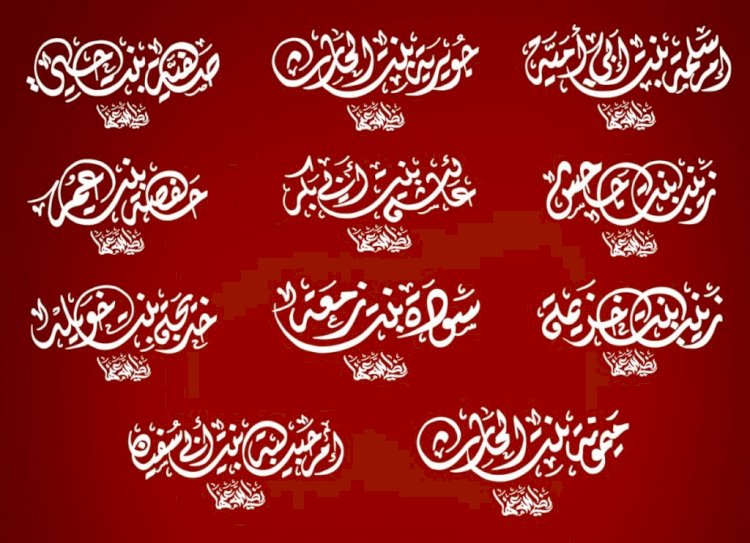



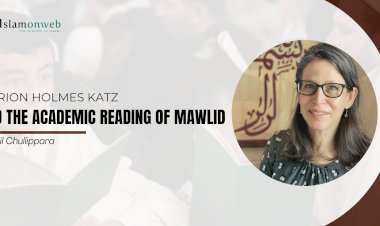
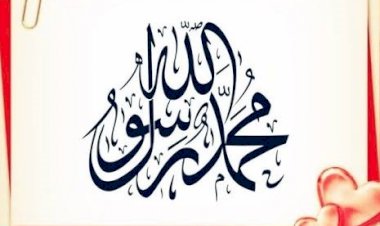
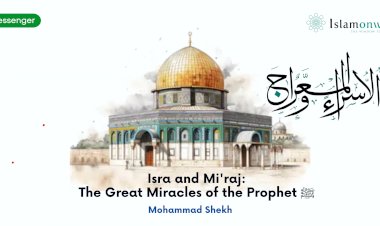
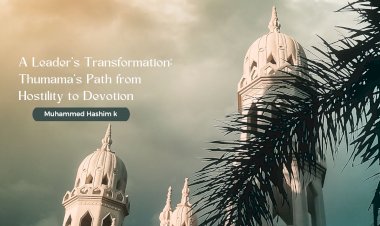

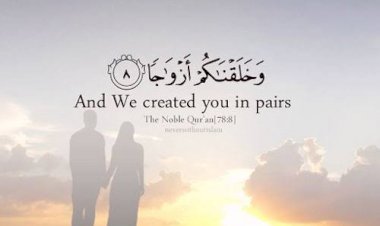














Leave A Comment